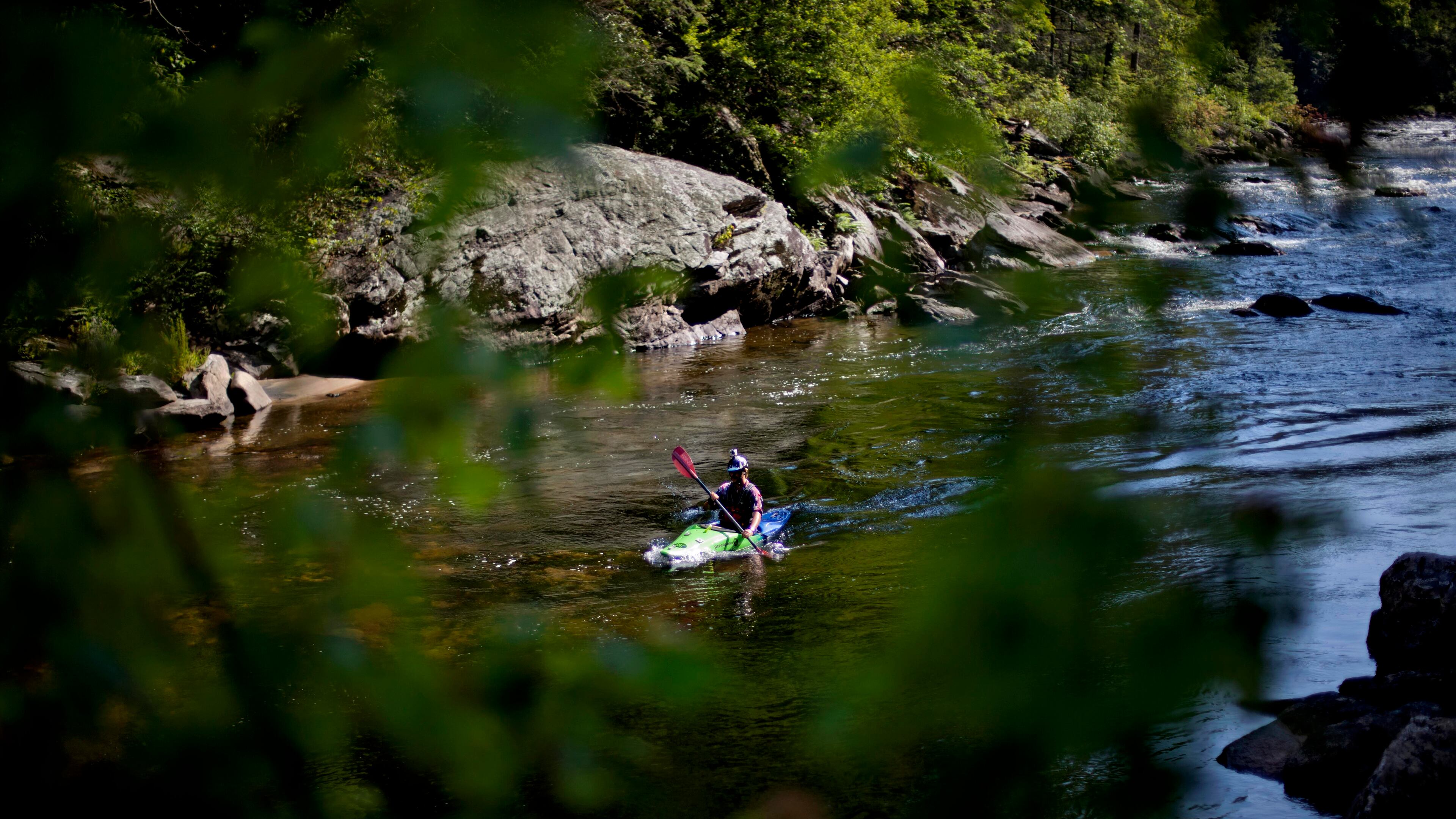Floating Georgia’s creeks shouldn’t require permission

Imagine a world in which you as a homeowner had the right to block passage down the sidewalk in front of your home simply because you didn’t like your neighbors passing by your living room window. If you exercised this right, undoubtedly, you’d inconvenience (and anger) your neighbors and, undoubtedly, you’d interrupt local business.
For obvious reasons, no such right exists.

But what if this hypothetical applied to a creek or river flowing past your living room window? Should a property owner along a water body that floats boats have the right to prohibit the public from passing down that stream?
The answer to that question should be a resounding “NO!” That is, if Georgia’s legislators want to grow Georgia’s outdoor recreation economy, keep us competitive with neighboring states, protect small businesses and protect property rights.
Unfortunately, a House study committee trying to answer this question seems inclined to bestow upon property owners along Georgia’s small rivers and streams that very right. Streams that support thriving small businesses providing canoe, kayak, tube and raft guide services are at risk of being deemed “private,” a status that could jeopardize the continued existence of these businesses.
One proposal put forth in the last legislative session would put hundreds of popular boating destinations in jeopardy. An analysis by Suzanne Welander, author of the state’s seminal guide to recreational boating in Georgia, estimates that the proposal would make “private” about 75% of the state’s nearly 200 “floatable streams.”
Legislators, citing a Civil War-era definition of what constitutes a “navigable” stream in Georgia (it must be capable of floating a boat loaded with freight), assert that those streams that don’t meet that test are privately owned and thus subject to the whims of the property owners along them. To float these streams, they say boaters should first seek permission from every landowner along the stream.
In adopting such a narrow view of where we can float, legislators are ignoring boating rights that have been enshrined in Georgia law since statehood and upheld by courts in the modern era. In the late 1700s and early 1800s, boats were often the only way to move goods to market. The state’s creeks and rivers, including some very small ones, were Georgia’s first superhighways.
Early land grants in Georgia did not include the right to block passage down adjoining streams. On the contrary, if property owners wanted to build mill dams, they had to first seek permission from state lawmakers. When permission was granted, it was typically done so with provisions requiring that a portion of the stream remain open for passage of boats.
Legislators even passed laws requiring property owners along such streams to remove obstructions so that boats could pass. Failure to do so could result in hefty fines. In 1849, the Georgia Supreme Court confirmed this “right of passage” on any stream that could float a boat. Modern-day courts have upheld this position.
Today, no commercial shipping takes place on any of Georgia’s inland rivers, but a host of commerce takes place. Recreational boating and fishing generated $1.1 billion in economic activity in 2022. Access to and passage down Georgia’s streams is critical to the state’s thriving $79.7 billion tourism industry.
Allowing a single property owner to prohibit passage down floatable streams not only has the potential to shut down small businesses, but it also prevents other stream-front property owners from accessing that recreational resource. It’s akin to allowing homeowners to close sidewalks in front of their homes.
And, where outdoor recreation thrives, especially in rural areas, those tourism dollars generate local sales tax revenue that reduces property taxes for all landowners.
In neighboring states, the idea that the public should be able to float down small streams has already been enshrined into law. They already have a leg up on Georgia in attracting those outdoor recreation tourism dollars.
If legislators really want Georgia to continue to be the No. 1 state to do business, they need to protect a right that the public has enjoyed on Georgia’s streams for more than two centuries. And they need to support — not endanger — small outdoor recreation businesses across the state.
Rena Ann Peck, an Atlanta native, is the executive director of Georgia River Network.


